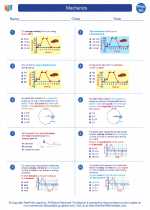Electric Charge
Electric charge is a fundamental property of matter. It can be positive or negative, and is the source of electric fields and the force of electromagnetism. The unit of electric charge is the coulomb (C).
Types of Electric Charge
There are two types of electric charge: positive and negative. Protons carry positive charge, while electrons carry negative charge.
Conservation of Electric Charge
Electric charge is conserved, meaning it cannot be created or destroyed. In any process, the total electric charge remains constant.
Coulomb's Law
Coulomb's law describes the electrostatic force between two charged objects. It states that the force between two point charges is directly proportional to the product of their charges and inversely proportional to the square of the distance between their centers.
F = k * |q1 * q2| / r^2
Where F is the force between the charges, k is Coulomb's constant, q1 and q2 are the magnitudes of the charges, and r is the distance between the charges.
Properties of Electric Charge
- Like charges repel each other: Two positive charges or two negative charges will repel each other.
- Unlike charges attract each other: A positive charge will attract a negative charge.
- Charge is quantized: Charge exists in discrete amounts, and the smallest unit of charge is the charge of an electron (-1.6 x 10^-19 C).
Study Guide
- Define electric charge and explain its fundamental properties.
- Describe the types of electric charge and identify the particles that carry each type of charge.
- Explain the principle of conservation of electric charge and provide examples of its application.
- State Coulomb's law and explain how it quantitatively describes the force between two charged objects.
- Discuss the properties of electric charge, including the behavior of like and unlike charges, and the quantization of charge.
Understanding electric charge is essential for comprehending various phenomena in physics, including the behavior of atoms, the functioning of electrical circuits, and the nature of electromagnetic interactions.



